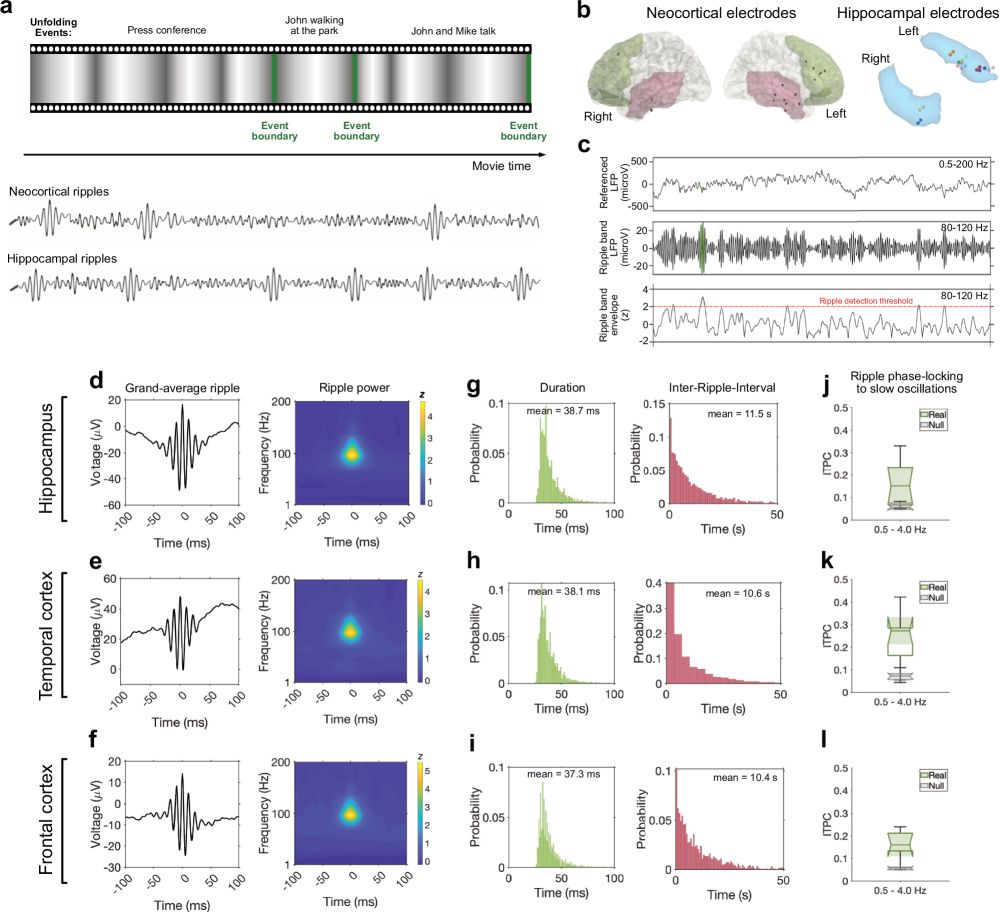

🧠 Using human iEEG + pharmacology, we asked: is hippocampal theta required for retrieval?
Turns out it’s not. Instead, it may reflect a reinstated encoding mode.
Thread below.
www.biorxiv.org/content/10.1...
www.nature.com/articles/s41...
With @lukaskunz.bsky.social, Joshua Jacobs, and our colleagues from the University of Freiburg

www.nature.com/articles/s41...
With @lukaskunz.bsky.social, Joshua Jacobs, and our colleagues from the University of Freiburg
We hope it sparks a smile (and maybe a few debates).
Read here: tinyurl.com/3ycv3vj2


We hope it sparks a smile (and maybe a few debates).
Read here: tinyurl.com/3ycv3vj2
We investigated how hippocampal and cortical ripples support memory during movie watching. We found that:
🎬 Hippocampal ripples mark event boundaries
🧩 Cortical ripples predict later recall
Ripples may help transform real-life experiences into lasting memories!
rdcu.be/eui9l

We investigated how hippocampal and cortical ripples support memory during movie watching. We found that:
🎬 Hippocampal ripples mark event boundaries
🧩 Cortical ripples predict later recall
Ripples may help transform real-life experiences into lasting memories!
rdcu.be/eui9l
🧠 Using human iEEG + pharmacology, we asked: is hippocampal theta required for retrieval?
Turns out it’s not. Instead, it may reflect a reinstated encoding mode.
Thread below.
www.biorxiv.org/content/10.1...

🧠 Using human iEEG + pharmacology, we asked: is hippocampal theta required for retrieval?
Turns out it’s not. Instead, it may reflect a reinstated encoding mode.
Thread below.
www.biorxiv.org/content/10.1...

